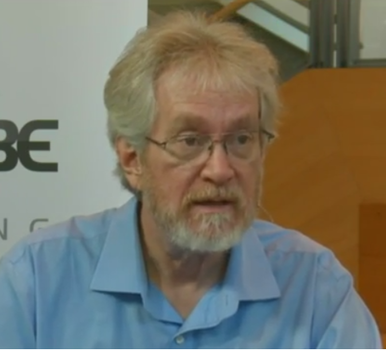Menu
Coming soon: A more trustworthy form of encryption |

It's a sad fact of modern life: Our personal data is under constant attack. It is a source of revenue for computer criminals of all types, and both the open nature of the public Internet and human fallibility make the data difficult -- some would say impossible -- to safeguard.
The April 28, 2015, Weekly considered the shortcomings of data encryption and concluded that even imperfect encryption beats no encryption at all. Now there's word from researchers at MIT of a new form of encryption that promises a higher level of data protection. In a July 22, 2015, article, Silicon Angle's Kyt Dotson reports on the Enigma project, which is developing a method that allows data to be processed without being shared with anyone other than those explicitly authorized to view it. MIT Professor Alex "Sandy" Pentland (pictured above), who advises on the project, discussed Enigma's goals and structure at a recent MIT CDOIQ Symposium. Enigma uses a modified version of the Bitcoin blockchain technology, which relies on a "distributed ledger" to determine who may access the decrypted version of the data. The details of the project are presented in an MIT whitepaper (pdf). In a nutshell, multiple "partially trusted" entities rely on the Bitcoin blockchain via the distributed ledger to reach a consensus about who is allowed to access the data. The key is the ability to process the data without revealing too much about it -- enough to infer the data itself, which defeats the purpose of encryption in the first place. According to Dotson, a beta version of Enigma will be available soon, and the Enigma site is currently allowing potential participants to sign up. Projects such as Enigma are a big step toward allowing us to have more control over the security of our personal information rather than having to rely on the companies and organizations we interact with over the Internet. DIY data security is as win-win as it gets. |
